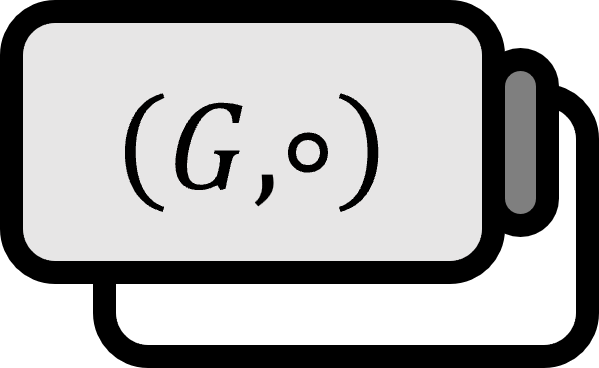Irreducible Elements of Polynomial Functions
Definition 1
A non-constant function $f(x) \in F [ x ]$ is said to be an Irreducible Element on $F$ if it cannot be represented as a product $f(x) = g(x) h(x)$ of some $g(x) , h(x) \in F [ x ]$ with lower degree than $f(x)$.
Explanation
For example, consider $\mathbb{Q} [x ]$. Here, $x^2 - 2$ is an irreducible element over $\mathbb{Q}$, but in $\mathbb{R} [ x ]$, $x^2 - 2$ can be factored over $\mathbb{R}$ as $$ (x + \sqrt{2} ) ( x - \sqrt{2} ) $$ Additionally, $x^2 + 1$ is irreducible over $\mathbb{R}$ but can be factored in $\mathbb{C}$ as $$ (x + i ) ( x - i ) $$
Just like when talking about open and closed in topology, it’s important to specify where exactly something is irreducible. Of course, according to the definition, the polynomial of $F [ x ]$ only needs to be considered on $F$, but for the extended $E$ of $F$, it will be on $f(x) \in E[x]$.
Thinking about this irreducibility allows us to truly complete the Factor Theorem.
Theorem
- [1]: If an irreducible element $p(x) \in F [ x ]$ divides $r_{1} (x) \cdots r_{n} (x) \in F [ x ]$, then $p(x)$ must divide one of $r_{1} (x) , \cdots , r_{n} (x) $.
- [2]: Every non-constant function $f(x) \in F [ x ]$ in $F$, which is not a constant function, can be factored into irreducible elements, and this factorization is unique.
- The uniqueness mentioned here does not consider the order or the multiplication of units. For example, the difference like $$ x^2-1 = (x+1)(x-1) = [-(x+1)][-(x-1)] = (x-1)(x+1) $$ will be disregarded.
Significance
This theorem can be seen as an extension of the Fundamental Theorem of Arithmetic from number theory to abstract algebra. If the factor theorem proved the existence of factorization for polynomials, the above fact guarantees its uniqueness.
Fraleigh. (2003). A first course in abstract algebra(7th Edition): p214. ↩︎
